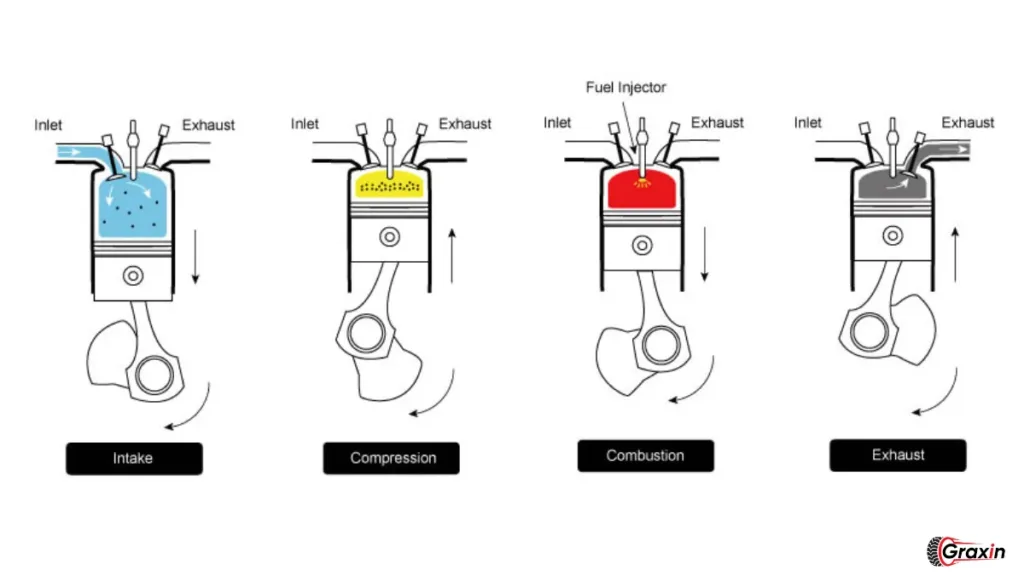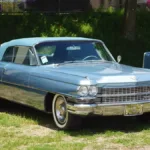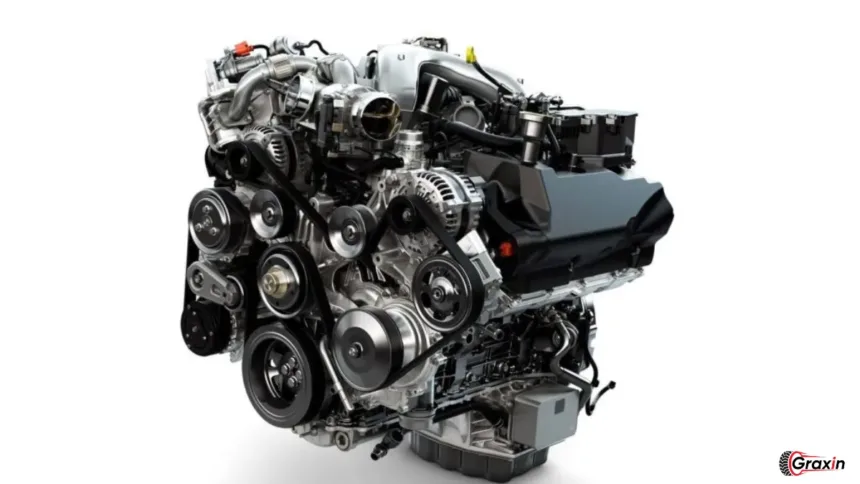Diesel engines have been prized for ages regarding durability and efficiency. There is, however, one query that pops up quite often: Do diesel engines make use of spark plugs? Whether you’re a new comer in the world of car mechanics or an inquisitive driver, it’s pertinent to know how diesel engines work. Spoiler alert: the answer is diesel engines don’t use spark plugs in the same manner as a gasoline engine does. But why? Let us plunge into what makes diesel engines special and how they ignite with no spark plug.
What are Spark Plugs?
As such, before we can decide if diesel engines use spark plugs, it is sensible to understand what we mean by terming a component a spark plug. In general, a spark plug is a part that makes gasoline engines have their air-fuel mix up ignited thus creating the explosion that propels the engine. They do this by producing an electrical spark in the combustion chamber just at the right instant to make the fuel-air mixture explode. The explosion is very fundamental in the manufacture of smooth running in an engine.
Do Diesel Engines Have Spark Plugs?
The short and easy answer is that diesel engines have no spark plugs, whereas gasoline engines rely on a spark plug to ignite fuel. A diesel engine actually uses a completely different form of combustion called compression ignition. This increased compression ratio within a diesel engine causes the air inside that cylinder to heat up to extreme temperatures – hot enough that it will ignite the fuel on its own without a spark.
How Diesel Engines Ignite Fuel
Diesel engines function by the method of compression ignition. In more detail, it works as follows: air is drawn into the cylinder and compressed to a far higher degree than in a gasoline engine. As the air is compressed, it heats up to a degree that’s hot enough for the diesel fuel to ignite it upon injection into the cylinder, therefore this self-ignition process does all the work for the engine.
Diesel VS Gasoline Engines: Key Differences

There are several fundamental differences between diesel and gasoline engines, including:
- Fuel Type: Diesel engines use diesel fuel, which is denser and more energy-rich than gasoline.
- Ignition Process: Gasoline engines rely on spark plugs, whereas diesel engines rely on compression ignition.
- Efficiency: Diesel engines are generally more fuel-efficient, particularly at higher loads.
What are Glow Plugs?
While diesel engines don’t have spark plugs, they do have something called glow plugs. Glow plugs are essential for cold starts in diesel engines. They don’t ignite the fuel directly like spark plugs do, but they help preheat the air in the combustion chamber to make it easier for the fuel to ignite during cold conditions.
How Glow Plugs Work in Diesel Engines
Essentially, these glowing plugs are miniature heaters that preheat the combustion chamber. When starting a diesel engine in extremely low temperatures, they warm the air to a temperature where easy ignition takes place. Without them, it would be relatively tougher to start a diesel engine in freezing temperatures.
Why Diesel Engines Rely on Compression Ignition
Diesel engines have much higher compression than gasoline engines. The high compression alone is sufficient to heat up the air to a condition wherein fuel self-maintains through ignition. Compression ignition is, in fact, much more efficient than spark ignition, which is one reason why diesel engines are much in favor for applications requiring a lot of torque like hauling or towing.
Advantages of Diesel Engines Without Spark Plugs
Diesel engines have several advantages because they don’t use spark plugs:
- Durability: Fewer components like spark plugs mean fewer parts that need replacing.
- Fuel Efficiency: Diesel engines typically offer better mileage compared to gasoline engines.
- Longevity: Diesel engines are known for their longevity and are often used in heavy-duty applications.
When Diesel Engines Use Glow Plugs
Glow plugs are particularly useful during cold weather. In moderate climates, glow plugs are rarely needed, but in colder conditions, they ensure smooth engine starts by helping to preheat the combustion chamber.
Common Misconceptions About Diesel Engines
With current advancements, it is surprising how many misconceptions exist about diesel engines. Some have the perception that diesels are harder to start, noisy, and old-fashioned, but nothing could be further from reality. New and modern diesel engines are quite refined, with several advancement phases that make them quieter and more fuel efficient than ever.
Modern Advancements in Diesel Technology
Diesel engines have come a long way. New advancements have made them more environmentally friendly, with improved fuel efficiency and lower emissions. Modern diesel engines are now equipped with technologies that reduce noise and vibration, making them a viable option for a wide range of vehicles.
When Spark Plugs are Necessary: Gasoline and Hybrid Engines
Spark plugs are still essential in gasoline engines and in some hybrid systems that use both diesel and gasoline components. However, as diesel engines operate differently, they don’t need spark plugs to function.
Maintenance Tips for Diesel Engines
To keep your diesel engine running smoothly:
- Check and replace glow plugs when necessary, especially in colder climates.
- Maintain compression ratios by ensuring regular maintenance of the engine’s internal components.
Conclusion
However, in conclusion, diesel engines never make use of spark plugs because they operate based on compression ignition to ignite fuel; however, a glow plug can help in the starting of cold. Diesel engines have different designs that offset the disadvantages which include more fuel efficiency, durability, and many others.
If you want more information about how a car engine works you can checkout this video
FAQs
- Why don’t diesel engines have spark plugs?
Diesel engines use compression ignition, where the fuel ignites due to high pressure and temperature, eliminating the need for spark plugs. - What is the role of glow plugs in diesel engines?
Glow plugs preheat the air in the combustion chamber, making it easier for the engine to start in cold conditions. - Do diesel engines last longer than gasoline engines?
Yes, diesel engines are known for their durability and can last longer due to their robust construction. - Can you use spark plugs in a diesel engine?
No, diesel engines don’t use spark plugs because they rely on high compression to ignite the fuel. - Are diesel engines more fuel-efficient than gasoline engines?
Yes, diesel engines are generally more fuel-efficient, especially when operating under heavy loads.
Also Read: What Is an EVAP System Leak? Symptoms, Causes, and Fixes







